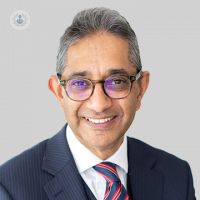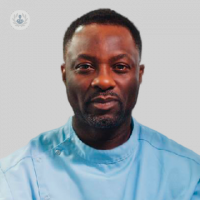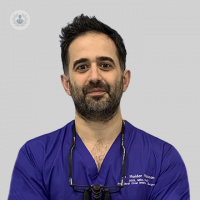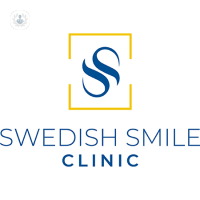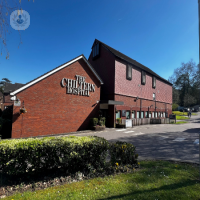What is oral surgery?
Oral surgery is a surgical operation performed in the oral cavity (teeth, mucous membranes and accessory tissue) to resolve or remove pathological anatomical abnormalities.
Operations are usually carried out at the dental clinic and normally involve minor surgery, so only a local anaesthetic is needed. Oral surgery is sometimes performed in the operating room under general anaesthetic if extensive surgery is required or if advisable, given the patient's condition.
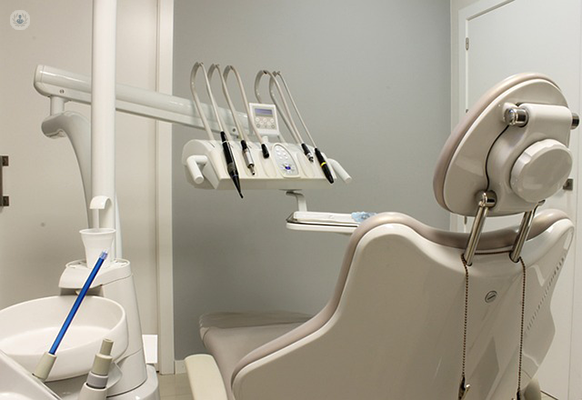
Types of oral surgery:
One of the most common types of oral surgery is wisdom tooth extraction, which is recommended if there is significant pain. Surgery to extract wisdom teeth is also recommended if there is infection, a cyst, or not enough space in the jaw to accommodate all of the teeth.
Other oral surgical interventions include:
- Complex dental extractions
- Removal of jaw cysts
- Biopsies
- Extraction of tooth roots from inside the bone
- Prosthetic implants
- Lingual frenectomy, or tongue-tie release surgery, which is indicated for children who have limited mobility of the lips and tongue due to the membrane that connects the tongue to the floor of the mouth being too large.
Is any special care needed after oral surgery?
You must take any medication as indicated and follow the instructions given at the clinic with regard to diet and the use of compresses. This is especially important for the first two hours: use cold compresses, never ice and be careful with what you eat – soft foods of ambient temperature being best. Following these instructions will help ensure a positive outcome from the surgery.
11-13-2012 06-13-2023Oral surgery
Professor Kavin Andi - Oral & maxillofacial surgery
Created on: 11-13-2012
Updated on: 06-13-2023
Edited by: Sophie Kennedy
What is oral surgery?
Oral surgery is a surgical operation performed in the oral cavity (teeth, mucous membranes and accessory tissue) to resolve or remove pathological anatomical abnormalities.
Operations are usually carried out at the dental clinic and normally involve minor surgery, so only a local anaesthetic is needed. Oral surgery is sometimes performed in the operating room under general anaesthetic if extensive surgery is required or if advisable, given the patient's condition.

Types of oral surgery:
One of the most common types of oral surgery is wisdom tooth extraction, which is recommended if there is significant pain. Surgery to extract wisdom teeth is also recommended if there is infection, a cyst, or not enough space in the jaw to accommodate all of the teeth.
Other oral surgical interventions include:
- Complex dental extractions
- Removal of jaw cysts
- Biopsies
- Extraction of tooth roots from inside the bone
- Prosthetic implants
- Lingual frenectomy, or tongue-tie release surgery, which is indicated for children who have limited mobility of the lips and tongue due to the membrane that connects the tongue to the floor of the mouth being too large.
Is any special care needed after oral surgery?
You must take any medication as indicated and follow the instructions given at the clinic with regard to diet and the use of compresses. This is especially important for the first two hours: use cold compresses, never ice and be careful with what you eat – soft foods of ambient temperature being best. Following these instructions will help ensure a positive outcome from the surgery.
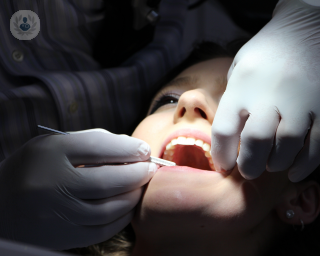

Wisdom tooth removal: how painful is it?
By Dr Ciro Gilvetti
2024-11-21
There’s a popular belief that wisdom teeth are painful and the removal of them is even worse. A lot of people are terrified when it comes to having their wisdom teeth removed. We asked Dr Ciro Gilvetti, a leading dentist in London, to put our minds at ease. See more

What does an oral surgeon do?
By Mr Josiah Eyeson
2024-11-21
Mr Josiah Eyeson is a leading oral surgeon specialising in the removal of impacted teeth and treating salivary gland disease. Find out what else these specialists do from an actual oral surgeon! See more


All you need to know about oral reconstructive surgery
By Mr Luke Cascarini
2024-11-21
Consultant oral and maxillofacial surgeon, Mr Luke Cascarini explains all about the reasons for needing oral reconstructive surgery, the methods, and recovery times. See more
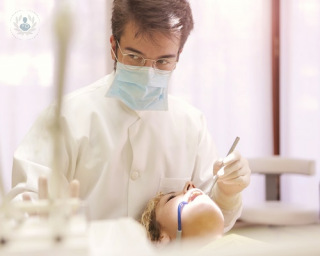

How often should I have my teeth professionally cleaned?
By Dr Olurotimi Adesanya MBE
2024-11-20
Experienced dentist Dr Olurotimi Adesanya explains how often you should have your teeth professionally cleaned and describes the process and benefits of dental hygiene treatment. See more
Experts in Oral surgery
-
Professor Kavin Andi
Oral & maxillofacial surgeryExpert in:
- Mouth cancer
- Skin cancer
- Oral surgery
- Head and neck cancer
- Salivary gland surgery
- Facial reconstruction
-
Dr Eleftherios Martinis
DentistryExpert in:
- Dental implants
- Oral surgery
- Bone reconstruction
- Dental bone grafts
- Sinus lift
- Zygomatic implants
-
Mr Bhavin G Visavadia
Oral & maxillofacial surgeryExpert in:
- Facial plastic surgery
- Dental implants
- Facial reconstruction
- Head and neck cancer
- Oral surgery
- Salivary gland surgery
-
Dr Olurotimi Adesanya MBE
DentistryExpert in:
- Oral surgery
- Orthodontics
- Dental implants
- Cosmetic dentistry (aesthetic dentistry)
- Tooth restoration
- Digital dentistry
-
Dr Haidar Hassan
DentistryExpert in:
- Oral surgery
- Dental implants
- Bone reconstruction
- Facial aesthetics
- Wisdom teeth
- Botulinum toxin (Botox™)
- See all

Swedish Smile Clinic
Swedish Smile Clinic
35 Devonshire Pl, Marylebone, London W1G 6JP
No existe teléfono en el centro.
By using the telephone number provided by TOP DOCTORS, you automatically agree to let us use your phone number for statistical and commercial purposes. For further information, read our Privacy Policy
Top Doctors

The Chiltern Hospital - part of Circle Health Group
The Chiltern Hospital - part of Circle Health Group
London Rd, Great Missenden HP16 0EN
No existe teléfono en el centro.
By using the telephone number provided by TOP DOCTORS, you automatically agree to let us use your phone number for statistical and commercial purposes. For further information, read our Privacy Policy
Top Doctors

Forest & Ray - Dentists, Orthodontists, Implant Surgeons
Forest & Ray - Dentists, Orthodontists, Implant Surgeons
8F Gilbert Pl, London, WC1A 2JD
No existe teléfono en el centro.
By using the telephone number provided by TOP DOCTORS, you automatically agree to let us use your phone number for statistical and commercial purposes. For further information, read our Privacy Policy
Top Doctors
-
Swedish Smile Clinic
35 Devonshire Pl, Marylebone, London W1G 6JP, W1G Marylebone LondonExpert in:
- Porcelain veneers
- Cosmetic dentistry
- Dental implants
-
The Chiltern Hospital - part of Circle Health Group
London Rd, Great Missenden HP16 0EN, Great MissendenExpert in:
- Allergies Ophthalmological
- Clinical analysis
- Cancer
- Breast Cancer
- Skin Cancer
- Prostate Cancer
-
Forest & Ray - Dentists, Orthodontists, Implant Surgeons
8F Gilbert Pl, London, WC1A 2JD, Central LondonExpert in:
- Braces
- Porcelain veneers
- Crowns
- Cosmetic dentistry
- Dental implants
- Orthodontics
- See all
- Most viewed diseases, medical tests, and treatments
- Migraine
- Head and neck cancer
- Neck lump
- Acellular dermal matrix (ADM)
- Prepectoral breast reconstruction
- One Stop Breast Clinic
- Botulinum toxin (Botox™)
- FUE hair transplant
- Carpal tunnel syndrome
- Platelet-rich plasma


